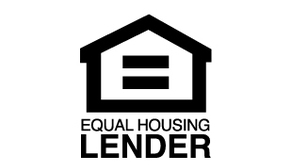If you haven’t thought about it yet (or done so), this summer may be the perfect time to refinance your mortgage. Mortgage interest rates are still very low and have just recently dropped again. If you’re a homeowner with good credit and sufficient equity in your home, odds are the lower refinance rates are within your reach.
By refinancing your mortgage, you can cut your mortgage payment and possibly shorten the term of the loan. Paying your loan off in a shorter time period is not only a surefire way to save money over the life of your loan, but it is also a way to obtain a more attractive rate on your mortgage.
If you don’t think you can handle higher monthly payments with a shorter-term loan, go with the longer term and make additional principal payments as circumstances allow.
Though you may not get the best rate currently available, you’ll avoid getting stuck with a high contractual monthly payment that could be a stretch for your monthly finances. You can still save money in the long term by paying less in interest on the newly refinanced mortgage.
Although the potential savings with refinancing can be significant, there are a number of factors to take into consideration. In this article, we’ll provide insights and tips to help you better understand if this is an opportune time or not.
 Mortgage Refinance Tips
Mortgage Refinance Tips
If you think that you might be ready to refinance your mortgage, there are many things to take into account to ensure you get the best deal. Taking a look at your current circumstances and using a mortgage refinancing calculator can help you to work out what approach you should take when you do decide to refinance. Below are a few of our best tips to help you along the way.
 Make Sure It’s The Right Time To Refinance
Make Sure It’s The Right Time To Refinance
External factors are important, such as low mortgage rates, but it also needs to be the right time for you to refinance. A general rule of thumb is that you should have at least 20% equity in your home. If your equity is less than 20 percent, and you have a good credit rating, you may be able to refinance anyway.
Refinancing makes sense for a lot of people, but it’s not the right choice for everyone. If you’re going to refinance your mortgage, you should think about the long-term and not just the immediate financial effect. You need to plan to stay in your home long enough that you will be able to get back the three to five percent of your home value that you will spend on closing costs.
 Minimize Your Debt
Minimize Your Debt
Lenders consider your debt-to-income ratio, so pay down loan balances, like auto or personal loans, if you have them. This ratio shows lenders that you have sufficient income to repay your mortgage. The lower your debt-to-income ratio, the lower your interest rates tend to be.
 Maximize Your Home Equity
Maximize Your Home Equity
our lender views the equity that you’ve built as your investment in your home. It provides added comfort for your lender that you have a stake in this transaction. The more equity that you have in your home, the less risky it is for your lender to refinance for you, and the lower your rates tend to be. Depending on how long you’ve been in your home, and how much cash you have on hand, it may be worthwhile to boost your equity. If, for example, you’ve almost achieved 20% equity, and you can afford to pay your loan down to that level, you can avoid paying PMI (private mortgage insurance) premiums on your loan, which will save a pretty penny.
If you find yourself in a situation where you have poor credit or little equity in your home, it is still possible to save money by refinancing with a government loan, like an FHA or VA loan, if you qualify. Depending on the terms of your original mortgage, those rates may be low enough right now to justify refinancing.
 Think About Your Refinance Goals
Think About Your Refinance Goals
It’s important to think about why you want to refinance your mortgage and what your goals are for doing so. Maybe you want to pay off your mortgage as quickly as possible. Or maybe you want to pay less interest overall. You decide what’s right for you.
If you simply want to pay off the loan as quickly as possible, you will want to look for the shortest term that offers monthly payments that you can afford. If your aim is to pay less interest, you will want a low-interest rate over a shorter term, while if you want to lower your monthly payments, you need a low-interest rate over a longer term.
Refinancing to a mortgage with a shorter term will usually be the best option unless your priority is lowering your monthly payments. A shorter loan term saves you money long-term, rather than offering short-term savings. You save money with a lower interest rate, plus save money over the life of the loan by paying less interest.
You could save tens of thousands of dollars with a shorter loan term and lower interest rate, even if your monthly payments increase. However, it’s important to keep in mind that these savings can alter if your interest rate changes.
 Consider A Cash-Out Refinance
Consider A Cash-Out Refinance
When housing prices are rising, you can take advantage of it. If you’re thinking about refinancing your mortgage, a cash-out refinance might be a good option for you. It helps you to release the equity in your home so you can benefit from the cash that you have put into it.
With a cash-out refinance mortgage, you might not be saving on your payments, but you do benefit from unlocking your equity instead. It’s also good to note that some lenders set a limit on how much cash you’re allowed to take out, so you should be aware of this when refinancing your mortgage.
 Balance The Costs Of Refinancing
Balance The Costs Of Refinancing
Refinancing your mortgage can save you money through your monthly payments or across the term of the loan. However, it will also cost you to refinance, with fees to pay that are important to take into account.
Before refinancing, you need to think about when you will recover the costs of refinancing. It should be easy to work this out if you know how much you’re going to save each month. With this information in hand, you can then decide whether it’s the right time to refinance. If you’re planning to sell soon, for example, it might not make sense to refinance your home.
 Use A Mortgage Refinancing Calculator
Use A Mortgage Refinancing Calculator
Having a clear budget is essential when refinancing your home. General examples can be helpful, but they don’t apply to your specific situation. By using a refinance calculator, you can plug in the numbers that are relevant to you and get helpful numbers. Find out how much you could save with a quick calculation.
 Get A Free Analysis
Get A Free Analysis
If you’re not sure whether refinancing is right for you or how to get the best deal, a refinance analysis can help. When you use an experienced mortgage banker or broker like A and N Mortgage, you can get free advice on whether it’s the right move and what your next steps should be.
 Save By Paying Points
Save By Paying Points
The option to pay points before you close the refinance deal can help lower the interest rate on your mortgage even further. This involves paying money upfront so that you can permanently buy down the interest you pay. If the point system makes financial sense for your specific situation, it could be worth the upfront cost to do it this way.
 Pay Close Attention To Your Credit Score
Pay Close Attention To Your Credit Score
Another thing you want to consider when you refinance is your credit score. Many lenders have strict rules. A credit score of 760 or higher is usually required to get the best rates.
However, if your credit score isn’t ideal, you can improve it fairly quickly. Start by checking for and addressing any errors on your credit report. You should also make sure to pay your bills on time and avoid getting too close to your credit limit. Also, you can work on paying down your credit card debt.
 Choose The Best Loan
Choose The Best Loan
Once you’ve got your affairs in order, choosing the best loan can make all of the difference. Consider what your goals are and select the best mortgage product to fit that bill. Understanding what drives each of the terms of your loan can help you find the best deal.
Consider the loan duration. Mortgages are usually issued for 10, 20, or 30-year terms. When you refinance, better interest rates are available for shorter-term loans because the lender is exposed to risk for a shorter time. Make sure that you can handle the monthly payment—it may be more than what you paid on a 30-year loan, but know that the shorter repayment period combined with these lower interest rates can quickly save you thousands, depending on your loan amount and other factors.
Consider how long you plan to stay in your home. This answer will have a significant impact on how you approach refinancing. Whether you plan to live in your house for the rest of your life or plan to relocate and sell within a few years can make a difference when you look for the best rate.
For a couple planning to sell their home within five years, for example, it might be prudent to consider an adjustable-rate mortgage. An ARM will generally begin with an attractive initial interest rate. The 5/1 ARM, for example, will guarantee your interest rate for the first five years of your mortgage. Every year after that, the interest rate may go up or down, depending on what the market dictates. If you only plan to keep your home for just a few years, taking the risk on an ARM will give you the benefit of a lower rate. If you plan to sell before the rate changes, you will protect yourself from future fluctuations and take advantage of a great rate.
On the other hand, if you plan to stay in your home for a long time, it makes sense to consider a few options that may save you money over the longer term, like buying discount points. Buying discount points is essentially paying upfront to lower your interest payments over the life of your loan. Under certain circumstances, this can be cost-effective.
Additionally, the longer you plan to keep your loan, the more sense it makes to pay for your closing costs out-of-pocket if you can. Otherwise, you’ll pay the interest on these new closing costs for the duration of the loan.
Research Rates
Make sure to get multiple quotes from several different sources. It’s a good idea to start with your existing lender, but compare that loan estimate to ones from your local bank or credit union against ones from independent loan originators. The rates and terms can vary significantly, so pay attention.
When you find a loan that suits your needs, request a mortgage rate lock to prevent your rates from rising while your loan is being processed, which can take a few weeks.
Just like with mortgages, pay attention to the APR, which includes the interest rate and all of your fees, like loan origination costs and closing costs, etc. The APR gives you a more comprehensive picture of how much refinancing will cost.
Key Takeaways
- Consider different factors affecting refinancing costs, including terms, rates, and points, to see if refinancing will help you save money
- Check that you have adequate home equity of at least 20% before refinancing your mortgage as it will make it easier to qualify for a loan
- Have a good credit score before applying for refinancing, and make sure your debt-to-income ratio is 36% or less
- Calculate your break-even point and check how refinancing will affect your taxes
- Talk to a mortgage professional who can easily help you with each of these steps
Refinancing your mortgage could be a good move for you, but you should do some research before making a decision. The easiest way to do this is to talk to a knowledgeable representative from a mortgage company who can help you determine if this the right financial move for you.
A and N Mortgage Services Inc, a mortgage banker in Chicago, IL provides you with high-quality home loan programs, including FHA home loans, tailored to fit your unique situation with some of the most competitive rates in the nation. Whether you are a first-time homebuyer, relocating to a new job, or buying an investment property, our expert team will help you use your new mortgage as a smart financial tool.










One Response to Why You Should Consider Refinancing Your Mortgage This Summer